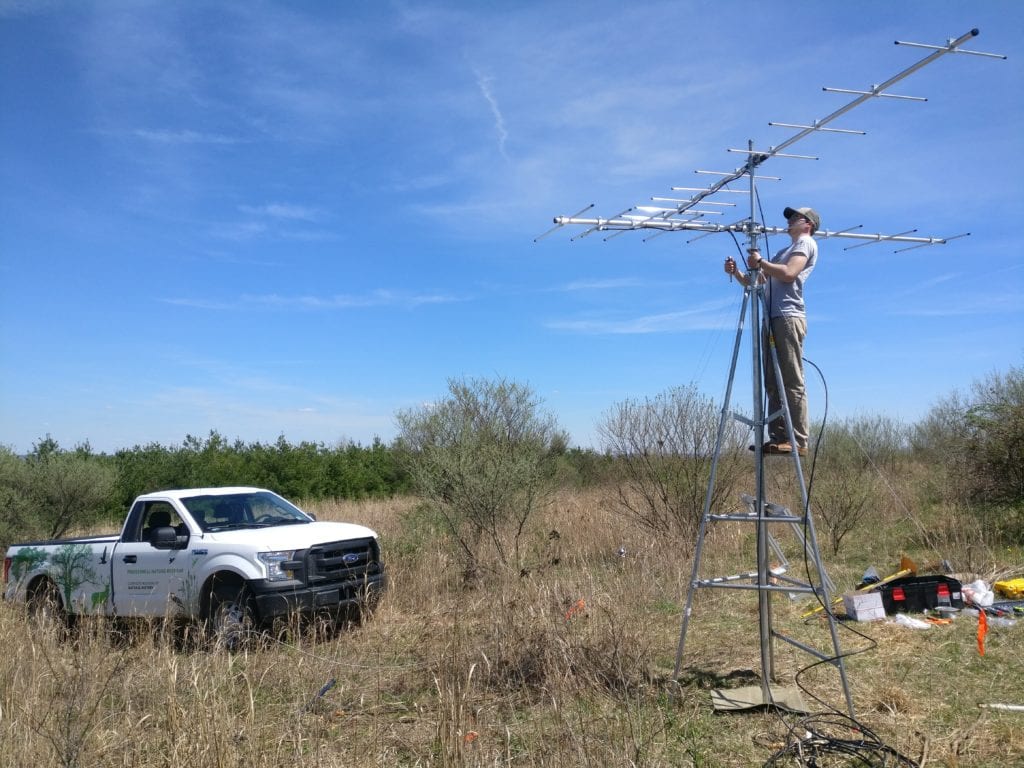
Avian researchers at the Carnegie Museum of Natural History’s Powdermill Nature Reserve have received funding from the U.S. Fish and Wildlife Service of approximately $200,000 for the grant proposal “Overcoming Geographic and Temporal Barriers to Identifying Landscape-scale Habitat Use of Multiple SGCN in the Mid-Atlantic Region Using Nanotag Technology.”
The grant also funds the placement of nanotags on several Species of Greatest Conservation Need (SGCN). Nanotags are digitally coded radio transmitters the size of a bean that are detected by a Motus station when an animal passes within nine miles. Together nanotags and Motus stations have been used to uncover remarkable migratory journeys such as a Gray-cheeked Thrush’s 46-hour, 2200-mile, non-stop flight from Colombia to Ontario.
“The eight species targeted for conservation action in this grant are of particularly grave concern, and the information we gain about them will help us better conserve them and the landscapes they need. But the expanded Motus network this grant provides will allow conservation agencies and researchers to learn about dozens of other declining and imperiled species of birds, bats and migratory insects that travel through the East, about whose movements we know little or nothing,” said author and researcher Scott Weidensaul, one of the founders of the Northeast Motus Collaboration.
DeGroote and his team will be placing nanotags on two SGCN, the American Woodcock and Wood Thrush. The nanotags and Motus stations will help researchers determine the effect of bird collisions with windows on behavior and long-term survival. It is estimated that 600 million birds die every year from collisions in the US alone.
“Many of us have seen a bird hit a window and later fly off, but we have no idea what the long-term repercussions of that collision are,” says Luke DeGroote, “Using this newly available technology, we’ll be able to determine, for the first time, if we’re underestimating the threat windows pose to birds.”
These funds are part of a larger allocation of funds by the Department of the Interior through the State Wildlife Service Grants Program and Tribal Wildlife Grant Program, which awards funds to Native American Tribes and State Wildlife Grants.
